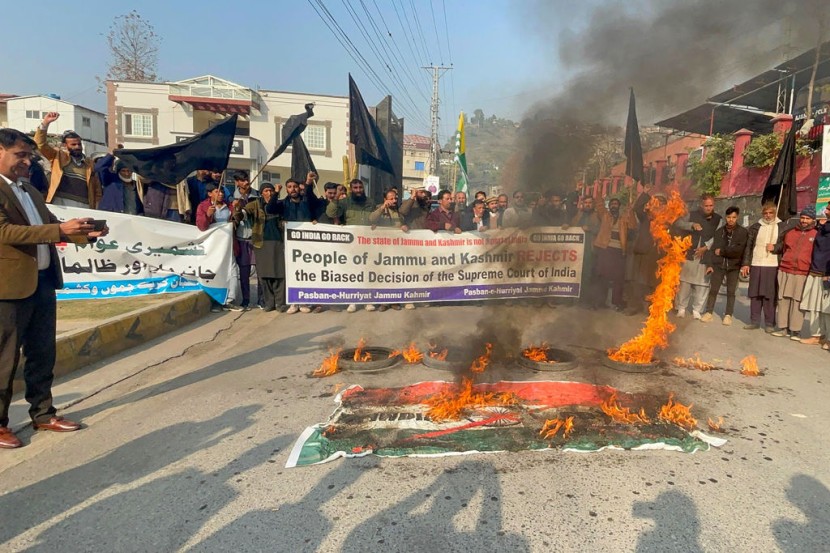India's highest court has affirmed the central government's decision to strip Jammu and Kashmir of its special status. The court mandated the holding of municipal elections in the region by September 30, 2024, as part of its ruling on Monday, December 11.
The move is seen by opponents as another action by the governing Bhartiya Janata Party (BJP) to isolate one area of India with a Muslim majority.

Article 370 of Indian Constitution
In 2019, the administration of Prime Minister Narendra Modi repealed Article 370 of the Indian constitution, which had allowed the disputed Jammu and Kashmir region considerable autonomy for the preceding seven decades or more since the first India-Pakistan conflict over the Himalayan territory in 1947.
India's highest court has heard a number of petitions questioning the legality of that action since August of this year.
The assertion that Jammu and Kashmir's special status had been just temporary was confirmed on Monday when a panel of five judges voted unanimously to support Modi's move. "Article 370 was an interim arrangement due to war conditions in the state. Textual reading also indicates that it is a temporary provision," Chief Justice DY Chandrachud stated, as reported by Al Jazeera.
Modi hailed Monday's verdict as "a beacon of hope, a promise of a brighter future" when it was announced. "It is a resounding declaration of hope, progress and unity for our sisters and brothers in Jammu, Kashmir and Ladakh," he posted on X (formerly Twitter).
Today's Supreme Court verdict on the abrogation of Article 370 is historic and constitutionally upholds the decision taken by the Parliament of India on 5th August 2019; it is a resounding declaration of hope, progress and unity for our sisters and brothers in Jammu, Kashmir and…
— Narendra Modi (@narendramodi) December 11, 2023
Also Read : Indian Prime Minister Narendra Modi Boosts Reputation as Ruling Nationalist BJP Sweeps Polls in 3 States
Disappointment Voiced by Critics
Ladakh and Jammu-Kashmir are two federal territories that were created after Modi revoked Article 370. Neither of these areas has its own legislature and is instead subject to direct federal control.
"This is a straightforward pandering to the Hindu-majority electorate in India," New Delhi-based defense expert Ajai Shukla told Al Jazeera after the 2019 cabinet decision. He said that the country's political climate has become increasingly divided, with the governing party wooing its Hindu base and opposing any measures it perceives as hostile to Muslims.
The disappointment was voiced by political parties in Kashmir that had fought the revocation and had gone to court.
The former chief minister and vice president of the Jammu & Kashmir National Conference party, Omar Abdullah, expressed his dissatisfaction on X, but said it did not dishearten him. "The struggle will continue. It took the BJP decades to reach here. We are also prepared for the long haul."
Similar sentiments were expressed by Mehbooba Mufti, a fellow ex-chief minister and current head of the People's Democratic Party of Jammu and Kashmir. She wrote on X that this was only the beginning of their journey, "The people of J&K are not going to lose hope or give up. Our fight for honour and dignity will continue regardless."








